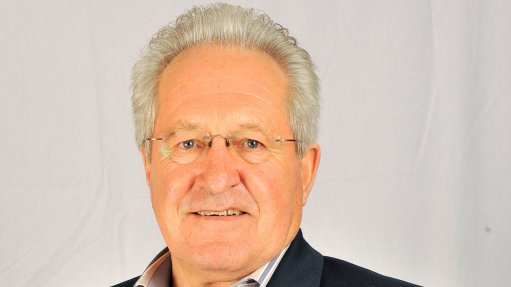
EVERT SWANEPOEL The meetings will encourage reciprocal business opportunities between Copper Development Association Africa members and mines
Nonprofit organisation Copper Development Association Africa (CDAA) encourages countries, such as Zambia and the Democratic Republic of Congo, to reduce their copper exports and start investing in infrastructure to support the use of copper in downstream industries.
CDAA executive chairperson Evert Swanepoel emphasises that the association promotes the use of copper in Africa and, therefore, encourages miners in Zambia to join the CDAA.
“The downstream development of copper has great potential and we believe we can facilitate meetings between our members and the mines to pursue this goal.”
Swanepoel notes that the meetings would hopefully encourage reciprocal business opportunities between CDAA members and the mining companies, where agreements could be reached on the supply of raw material from the mines and association members could provide technical assistance on downstream development.
While the CDAA currently has 36 members in South Africa and one member in Zambia, Swanepoel foresees opportunities in Zambia for “international cooperation, as the CDAA is part of the International Copper Association”.
Meanwhile, copper is used in sectors such as aquaculture and hospitals.
Mining Weekly previously reported that aquaculture is the fastest-growing industry in the world and the association can assist Copperbelt-based farmers of the Tilapia fish to install copper cages, which reduce biofouling, or the accumulation of microorganisms, plants, algae or animals on wet surfaces. This, in turn, promotes the farming of healthier and bigger fish, which, ultimately, will reduce the fish deficit in Zambia, says CDAA director Levine Warries.
Scientific tests have been concluded in marine and fresh water and, although the initial cost of a copper fish cage is higher than synthetic nets, the long-term advantages outweigh the upfront expense, says Warries.
Another important development is the installation of antimicrobial copper products in hospitals, which will reduce the bacterial bioburden by up to 83% and reduce the frequency of hospital-acquired infections, she notes.
Warries believes that the copper products being put forward by the CDAA can be manufactured in the Copperbelt using locally mined copper and add value to copper, which is being exported for beneficiation.